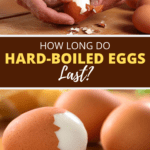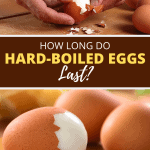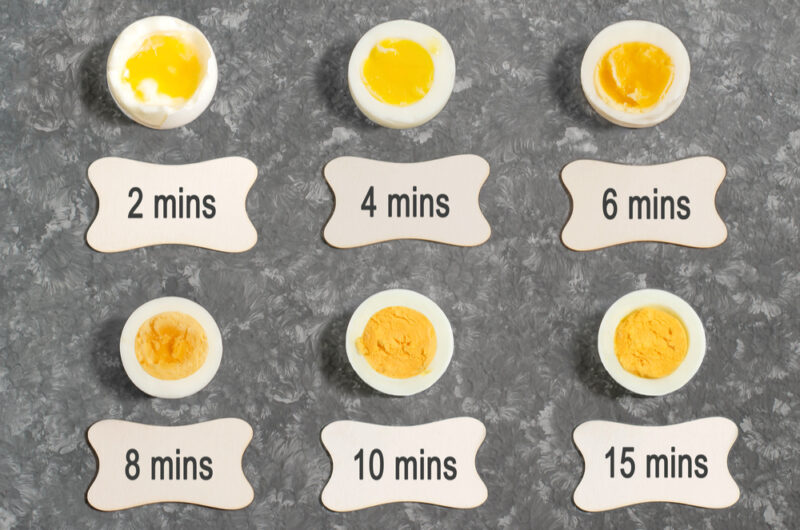
Eggs are one of the simplest yet most delicious proteins in the world. They can be eaten all by themselves, put into a breakfast casserole, or used in a variety of baked dishes.
But how long are hard-boiled eggs good for? And how long are they truly safe to eat after you cook them?
Read on to find out everything you need to know about hard-boiled eggs – their shelf life, storage guidelines, and how to check for spoilage.
How Long Do Hard-Boiled Eggs Last?
Hard-boiled eggs will last up to 7 days in the refrigerator (with the shell on). They last up to 5 days if the eggs have already been peeled.
| How long do hard-boiled eggs last? | In the refrigerator |
| Hard-Boiled Eggs with Shells On | 7 days |
| Hard-Boiled Eggs (Peeled) | 5 days |
While raw eggs can last in the fridge for up to 5 weeks, the same cannot be said for hard-boiled ones. Eggshells are porous, meaning it’s easy for bacteria to enter it. That’s why they come in a layer of cuticle to shield them from harm.
Additionally, suppliers spray oil on the shells to protect eggs further from harmful substances. This helps prolong their shelf-life. But when you boil them, the cuticle layer is dissolved and the artificial coating gets washed off, reducing its shelf life significantly.
Hard-boiled eggs that are unpeeled will last in the fridge for up to one week. If they are peeled, they will last for up to 5 days in the fridge. So while they won’t survive as long as raw eggs, you can still cook up a whole batch, refrigerate them, and eat them within 5 to 7 days.
Here’s a tip: label your eggs so you know how many good days they have left!
Another Quick Tip: Before peeling your hard-boiled eggs, rinse them with cold water immediately after boiling and then roll them on the counter with gentle pressure. This will make your eggs easier to peel.
How Long Do Hard-Boiled Eggs Last Unrefrigerated?
At room temperature, hard-boiled eggs will only survive up to two hours. So, be sure to consume hard-boiled eggs soon after cooking or taking out of the fridge!
How to Store Hard-Boiled Eggs?
The best way to extend the shelf-life of hard-boiled eggs is to refrigerate them. Place in an air-tight container to keep them safe from moisture and contaminants. Be sure to refrigerate them at all times.
Don’t make the mistake of freezing hard-boiled eggs. First of all, it will only decrease the shelf-life of the egg because freezing will destroy the shell’s cellular structure. Second, the egg whites become too tough and rubbery even after defrosting them.
If they start to get slimy at any point, throw them out.
How to Tell if An Egg Has Gone Bad?
This one’s easy to tell. If the egg emits a sulfuric or rotten odor, it’s time to discard it.
If you want to check the freshness of raw eggs, though, here’s an easy trick: place them in a bowl of water. If the egg sinks, it’s fine. But if it floats to the top, let it go! That means it’s gone bad and is not safe for eating.














